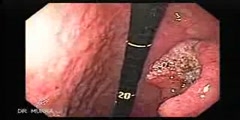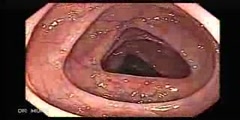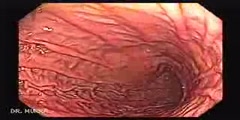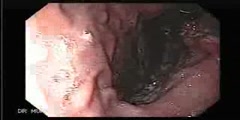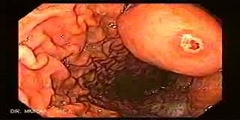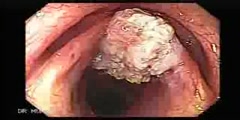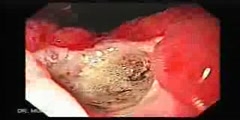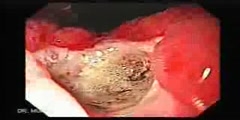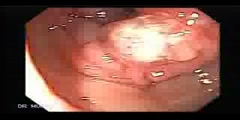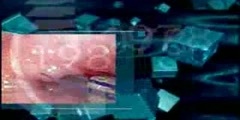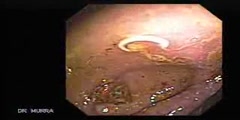Video Endoscopy of Severe gastritis
Acute Gastritis. The causes, natural history, and therapeutic implications of gastropathy differ from gastritis: Gastropathy is usually caused by irritants such as drugs (eg, nonsteroidal antiinflammatory agents and alcohol), bile reflux, hypovolemia, and chronic congestion. Gastritis is usually due to infectious agents (such as Helicobacter pylori) and autoimmune and hypersensitivity reactions. Acute gastritis may produce no symptoms but can be associated with short-lived dyspepsia, lack of appetite, nausea or vomiting. It can occasionally be severe enough to cause gastrointestinal bleeding with melena or hematemesis (see above). The most common cause is ingestion of aspirin or other non-steroidal anti-imflammatory drugs (NSAIDs). It can also occur during the early stages of infection with the bacteria, Helicobacter pylori "HP." Most cases resolve by themselves, but endoscopy and biopsy may be required to exclude other conditions such as peptic ulcer disease or cancer. At endoscopy the inner lining of the stomach (mucosa) may appear swollen, reddened and inflamed. There may be small, shallow erosions (breaks in the surface lining) or even tiny areas of bleeding from the mucosa.
